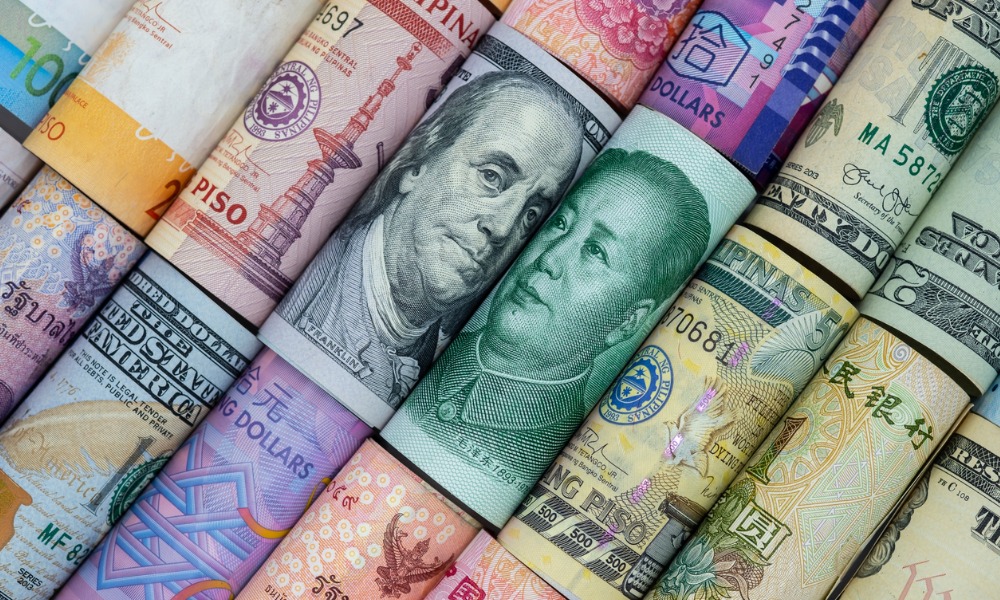
Most Asian markets report a decline in expat packages

Total salary and benefits packages offered to expatriates in Singapore went up by four per cent to reach US$258,752 in 2022, while most locations in Asia reported a decline in the same year.
Benefits and tax growth fuelled the increase reported in the city-state, which rose six places to the 16th position in the global rankings, ECA International's annual MyExpatriate Market Pay Survey revealed.
"The surge in the cost of expatriate accommodation in Singapore is being felt by locals and expatriates alike, as reflected in the nine per cent increase in the cost of benefits in expatriate packages when measured in USD terms," said Lee Quane, Regional Director - Asia at ECA International, in a media release.
"Only the fact that salaries fell by US$4,000 prevented Singapore from moving up the rankings further."
Singapore's growth is in contrast with the declines reported across various markets in Asia, including Hong Kong, Japan, Korea, China, and Taiwan.
Salary and benefits packages in Hong Kong went down by two per cent in 2022, with the total value of packages offered to expats hitting US$278,020.
Quane attributed the decline to lower salary costs in the financial hub.
"The cost of benefits in Hong Kong remained unchanged in 2022, unlike many other countries which saw significant increases, so the fall in salaries caused the overall package value to drop," Quane said in a separate statement.
Despite the decline, Hong Kong still rose three places in the global rankings to land in the top five locations with the highest expat packages.
"Hong Kong was helped by the strength of the Hong Kong dollar, causing it to rise three places in the rankings as other countries saw the value of the package drop as their currencies weakened," Quane said.
In China, expat salaries fell by five per cent in USD terms, with the country retaining its position as the location with third-highest expat packages in the region, according to the survey.
"The yuan strengthened against most major currencies compared to 2021, and as many expatriates are paid some or all of their salary in other currencies, this caused the average expat salary in yuan to fall," Quane said.
On the other hand, the weak Japanese yen also made the cost of overall salary and benefits packages offered to expats in Japan to drop in USD terms, according to ECA International.
The country registered a five per cent increase in local currency terms, remaining the second most expensive in the world, but the weak Japanese yen made the total package about 12% cheaper than the year before, costing US$370,183.
Malaysia had the lowest salary and benefits package in Asia, according to the report, with the overall cost falling by four per cent to US$164,696.
Globally, the United Kingdom remained the most expensive nation to send expatriates, with the total salary and benefits package hitting USD441,608 in 2022.
Cost of benefits for UK expats went up four per cent to US$167,594. Salary costs also increased by five per cent since 2021, but it only accounted for 18% of the total package.
"The rising cost of benefits is a key factor behind the UK retaining its status as the most expensive country in the world to send expatriates for the second year running, but exchange rates changes have also helped widen the gap with second placed Japan," said Oliver Browne, Remuneration and Policy Surveys Manager at ECA International, in a statement.
"Soaring rents drove a 15% increase in the overall cost of benefits, contributing to the cost of benefits for expatriates in the UK ranking highest globally for the second year running."
The United States also went up seven places to enter the top 10 in the global rankings, with the total cost of salaries and benefits for expatriates in the US rising by six per cent to USD272,770.
"The strong dollar caused the average expatriate salary in the US to fall, as many expats in the country do not receive all of their salary in US dollars," Quane said. "However, higher housing costs contributed to a 10% increase in the cost of benefits, meaning that companies will have found it more expensive to relocate staff to the US in 2022."